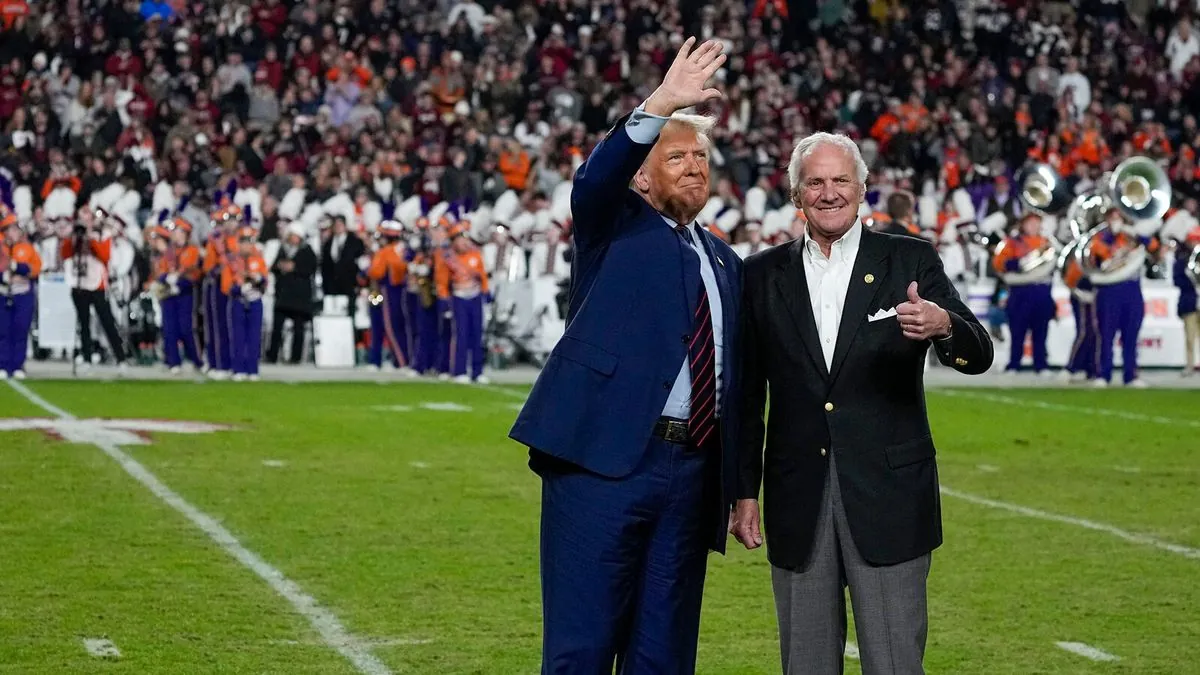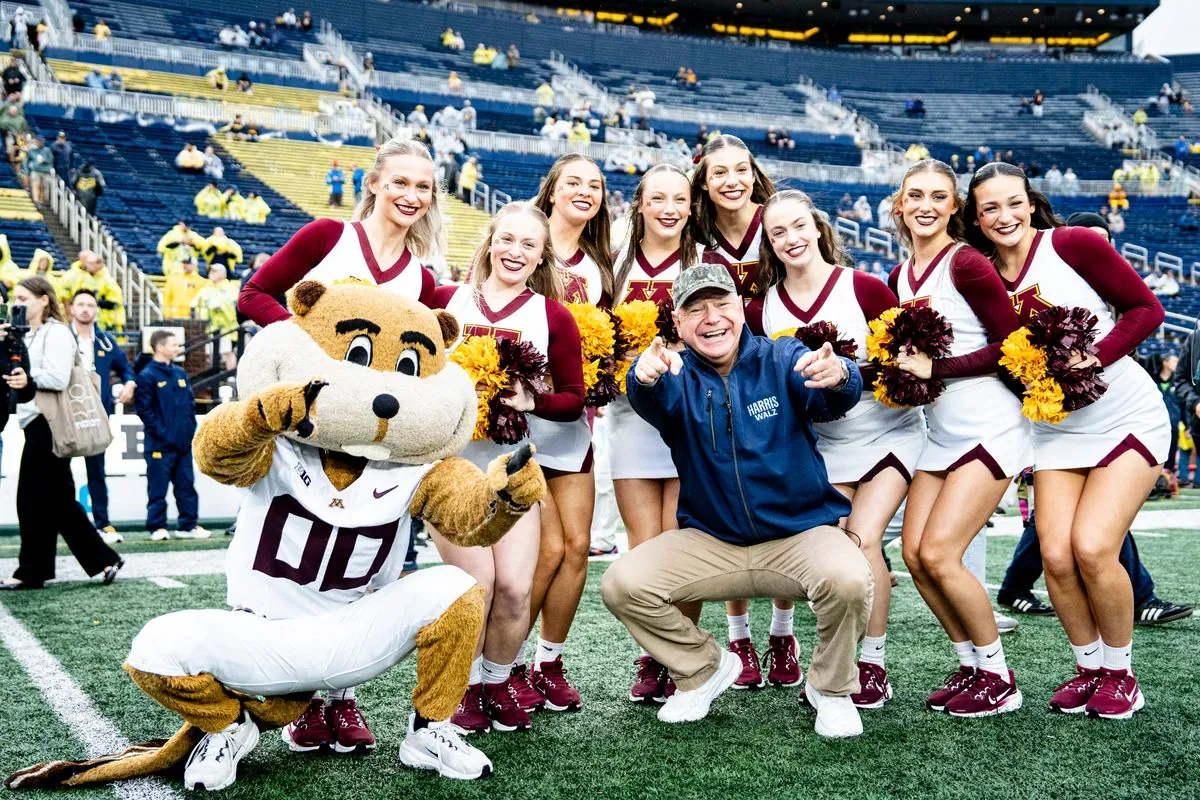Presidential Hopefuls Tackle Football Games for Campaign Visibility
Candidates Harris-Walz and Trump leverage football's popularity to connect with voters. Democrats shift stance on the sport, while security concerns loom for Trump at public events.

In a strategic move to connect with voters, presidential candidates are increasingly turning to America's favorite sport: football. As the 2024 election season coincides with the football season, both the Harris-Walz and Trump campaigns are utilizing the gridiron to shape their candidates' images and reach a broad audience.
Tim Walz, Minnesota Governor and running mate to Vice President Kamala Harris, recently attended a Michigan-Minnesota game at Michigan Stadium. Sporting a Harris-Walz jacket and camo cap, Walz's presence at the game in a swing state highlighted the Democrats' evolving stance on football. This shift comes a decade after former President Barack Obama expressed concerns about the sport's safety.
Meanwhile, GOP nominee Donald Trump made an appearance at the Georgia-Alabama game in Tuscaloosa, Alabama. Trump's attendance in reliably Republican territory provided an opportunity to engage with his base and capitalize on the sport's popularity.
The use of football as a campaign tool is not surprising, given its immense popularity. The NFL generates over $15 billion in annual revenue, and college football continues to grow, with ESPN recently agreeing to pay $1.3 billion annually for playoff broadcasting rights. This popularity translates to potential voter reach, as approximately two-thirds of Democrats and nearly three-quarters of Republicans and independents identify as football fans.

Both campaigns are employing various football-related strategies to connect with voters. The Harris-Walz campaign has launched "Athletes for Harris," an initiative to mobilize coaches and athletes, recognizing their influence on key voting blocs. They've also invested in advertising during game broadcasts and flown banners over college stadiums in swing states.
"Democrats are leaving it all on the field in the race to November, and that means reaching voters through nontraditional methods."
The intersection of politics and football is not new. Many past presidents and candidates have had connections to the sport, from Ronald Reagan portraying a legendary coach on screen to Gerald Ford playing college ball for Michigan. However, the current level of engagement with football by campaigns is unprecedented.
Trump's relationship with football has been complex. Despite owning a USFL team in the 1980s, he has been critical of the NFL's safety rules and used the sport as a cultural wedge issue. His appearances at college games, particularly in SEC stadiums, have generally been well-received by fans.
Security concerns remain a significant factor in Trump's public appearances, including at football games. His team has had to balance the desire for crowd interaction with heightened protection measures.
As the campaign season progresses, it's clear that both parties recognize the potential of football to reach voters across the political spectrum. Whether this strategy will score points with the electorate remains to be seen, but one thing is certain: the political playbook now includes a hefty chapter on America's favorite sport.


































